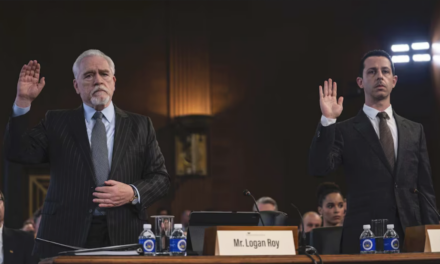I had never been a particular fan of Dennis Potter, but this was different. The film noir atmosphere, the unreliable narrator, ambiguous events and characters, the explicit play with the genres of fiction, both popular and elite, the edgy, coruscating dialogue…
And the music. It was my first experience of TV where you never quite knew where you were, and that was the point. OK, I had seen the first run Hill Street Blues in random order as transmitted by Thames TV late at night. That was disorienting, but at least the format stuck to the pattern of a day’s working shift. The Singing Detective had no such regularity. It was a work on several levels moving towards conclusions that could only come at the end of its six parts.
That was 25 years ago last week. BBC4 was all set to retransmit for the anniversary. Nothing like an anniversary to get the BBC moving, of course… except it hasn’t happened this time. On the surface, the reason seems to be money. The Guardian broke the story on 9 November 2011.
Just £5,000 at stake? That’s just under £850 an episode or £2 a minute for major drama starring Michael Gambon, Joanne Whalley, Patrick Malahide, Imelda Staunton, Jim Carter…. It seemed ridiculous, even to people I met that evening at an event totally unconnected with TV. When the topic came up, several offered to put into a fund to enable the poor cash-strapped BBC to show it again.
We were not alone. That same evening media entrepreneur Clive Hollick (who once controlled half of ITV and is married to founding Channel 4 commissioning editor Sue Woodford) walked up to BBC Director General Mark Thompson and offered him the full amount. Or at least that’s how he told it on Twitter.
Now that’s embarrassing. So the ‘Why it’s not as simple as you think’ department of the BBC was called into action. We can’t accept donations for making programmes, they say, raising the bogey of sponsorship.
So there it rests for the moment, with the BBC claiming to be trying to find ways of making this happen.
Meanwhile the anniversary is marked only by a day symposium that I’m organising. It features the producer (Keith Trodd), the art director (Jim Clay), the choreographer (Quinny Sacks) and actor Patrick Malahide on the difficulties of playing a multiple character. Then there’s screenwriter Peter Bowker on the importance of Potter for his work (Blackpool, Desperate Romantics etc); and film scholar Timothy Corrigan from the University of Pennsylvania on a rare visit, Glen Creeber and John Cook assessing the enduring legacy of the series on film and TV. Tickets still available.
That’s the plug, now the speculation. The BBC cannot agree terms with the agent for Potter’s affairs, Judy Daish. Not known as a soft touch (what successful agent is?), it’s likely that the relatively small sum is not all that’s at stake. The BBC wants to use more of its archive. The real expense in doing this lies in the laborious work of going back through the contract files and clearing all the underlying rights with multiple agents and agencies: not just the writer but the actors, the musicians, the composers, the production companies… if any one of them says no then the deal’s off and all the work is wasted.
So I guess the BBC wanted an agreement that would standardise terms for any future repeats. And this agent didn’t want to agree to that. As they say, ‘That’s showbiz’, but in this case its the second syllable of the term, turning round and biting the first.
So no Potter on his native medium, then. We just have to get the DVD instead. But it ain’t the same…





